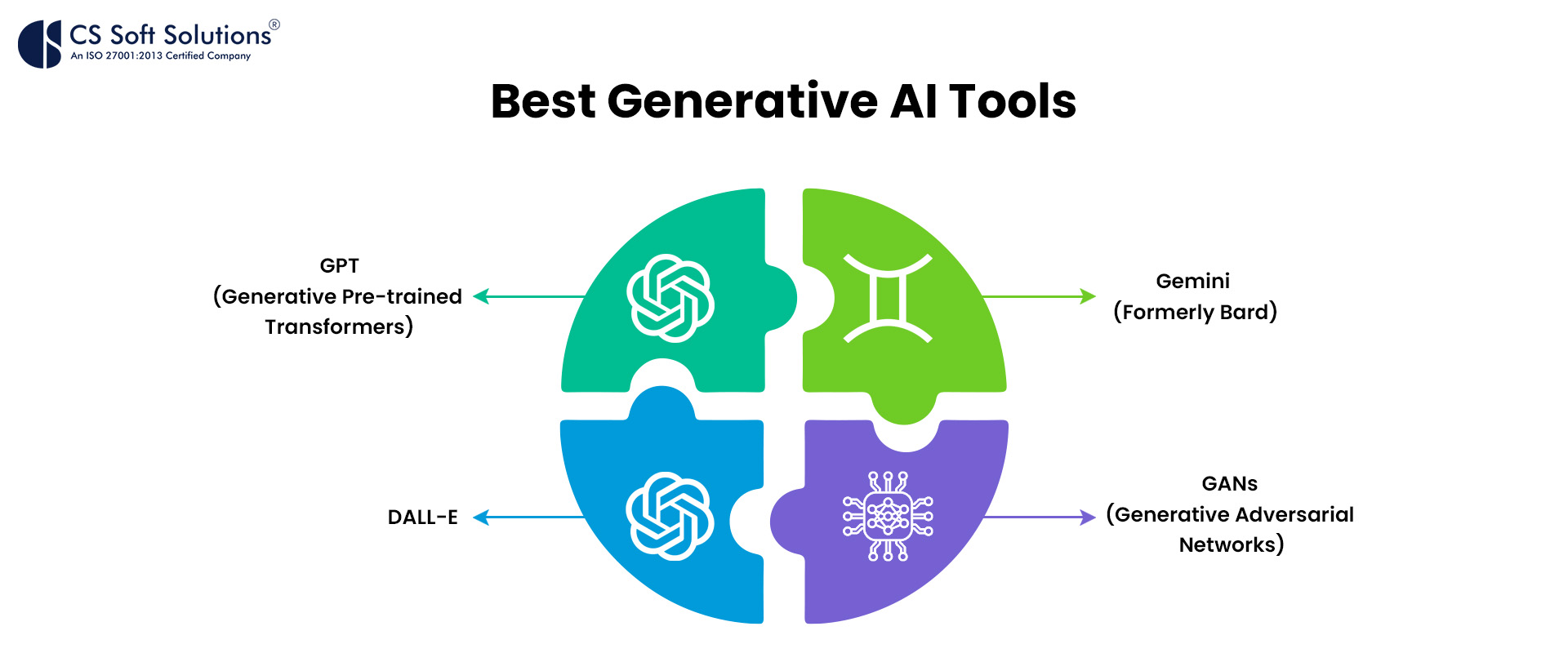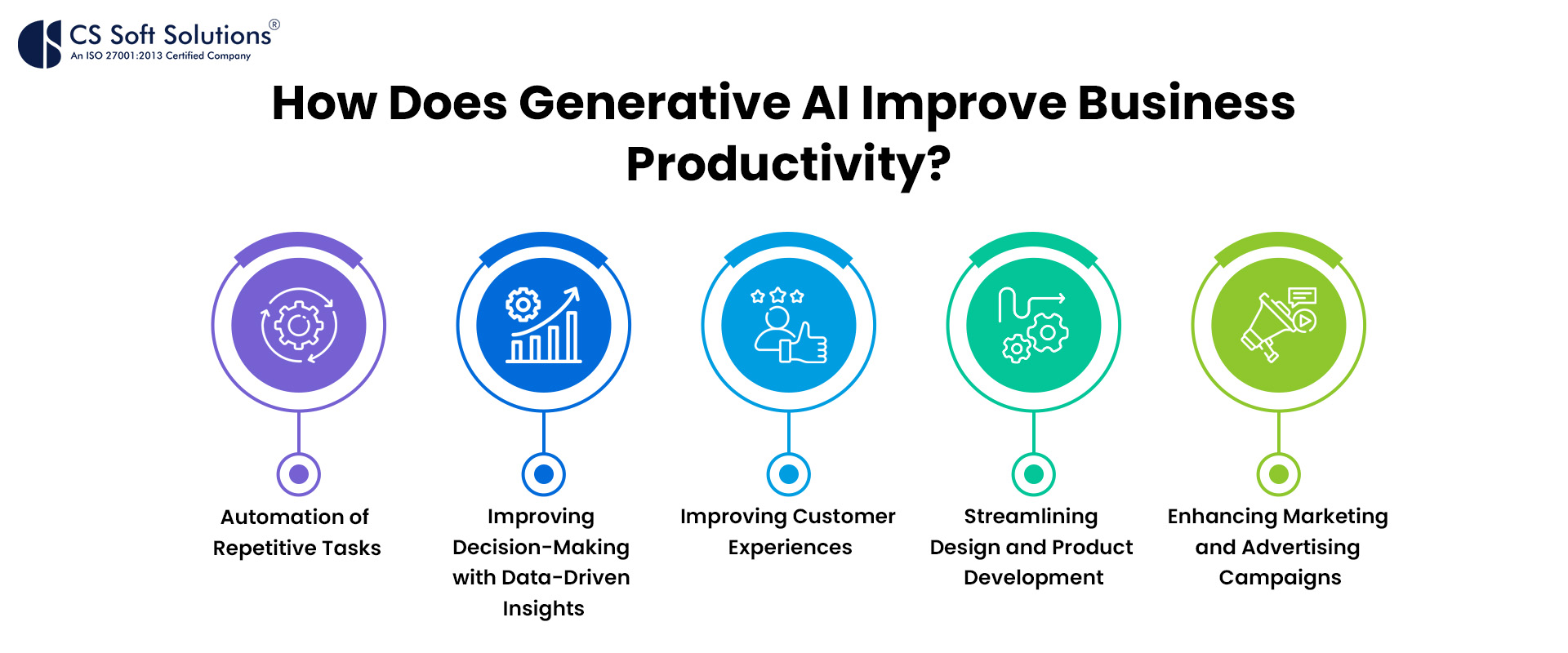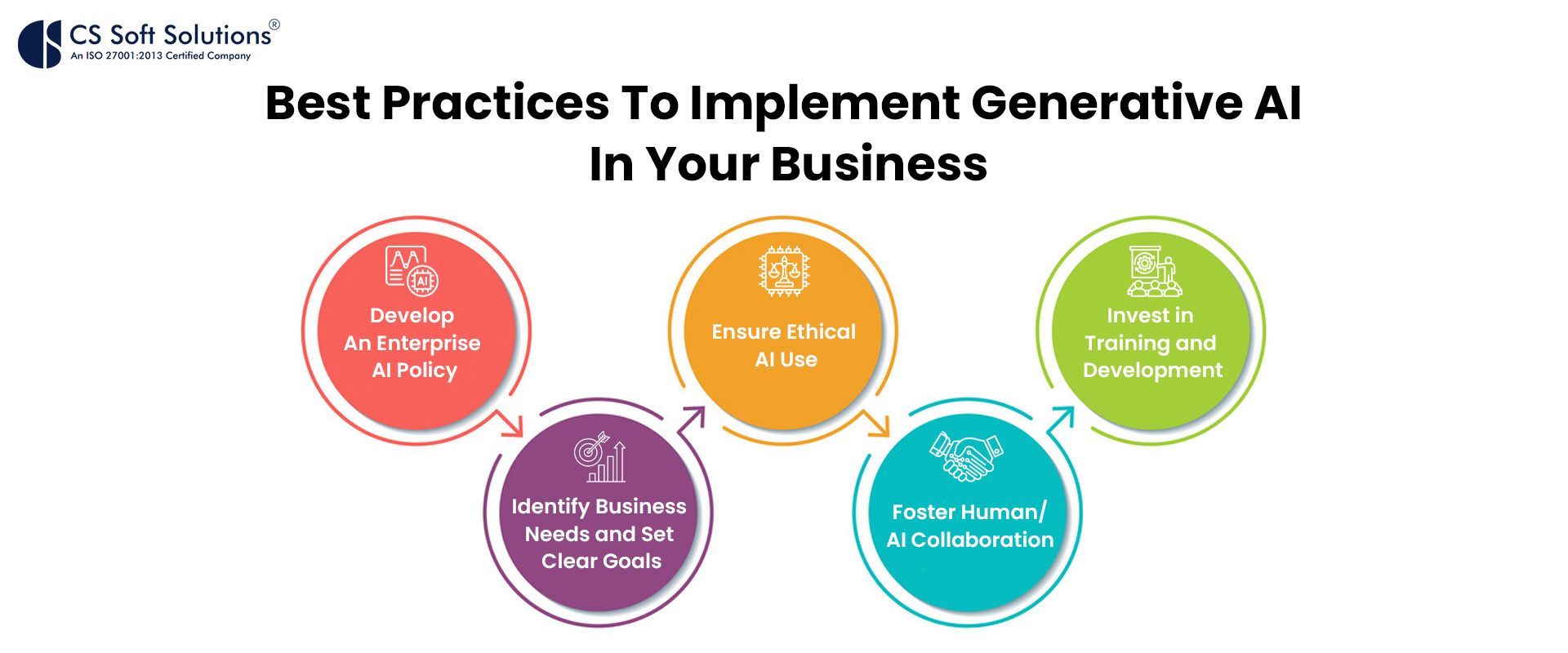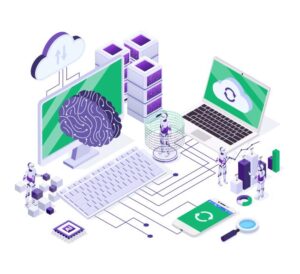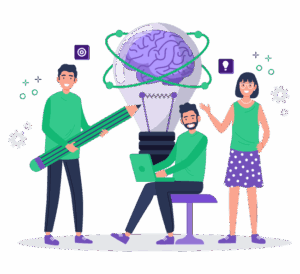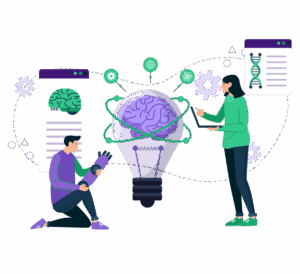
Generative AI technologies like GPT-3, DALL-E, and many more are transforming the business world with novel operations and processes.
The greatest business opportunity for generative AI lies in efficiency possibilities; automation of repetitive processes, improvement in decision-making processes, and the optimization of workflows.
This blog details how businesses can avail themselves of the Generative AI development with the help of advanced AI consulting services to truly increase the productivity of businesses and stay ahead of the curve in an ever-changing marketplace.
What is Generative AI?
Understanding the concept and workings of Generative AI is a fundamental aspect to understand how its business applications might be. Generative AI is algorithms and models, which may develop new content through existing data. This contrasts with the regular AI way where it is used to identify the pattern then gives predictions with the historical data; this makes Generative AI use patterns in creating new outputs.
Some of the most popularly known Generative AI technologies include:
- GPT, or Generative Pre-trained Transformers: A language model that produces text like a human, answers questions, and even writes essays, blogs, or poetry.
- Gemini (Formerly Bard): It is a chatbot and a content generation tool provided by Google. It employs the transformer-based model Lamda and is also a competitor of Google to ChatGPT. Currently, Bard is in an experimental phase. It is currently available to only a limited group of users from the US and UK.
- DALL-E: This is a model created by OpenAI that produces novel images based on text prompts. This would mean that a user can have original visuals created based on a description in the text.
- GANs or Generative Adversarial Networks: It can be used in generating realistic images, videos, and other multimedia content. Unearthing two neural networks against one another in this regard would continually improve the output generated to match the real deal.
These technologies present opportunities from automating creative tasks to better customer service and a more personalized user experience for businesses.
How does Generative AI Improve Business Productivity?
- Automation of Repetitive Tasks: The greatest strength of Generative AI development lies in the ability to automate routine, repetitive work. In short, it will save a company a lot of time and resources. Consider a customer service operation where an AI-based chatbot and virtual assistant would address common queries, take orders, and suggest something on their own. All this repetitive routine work will lighten the load for human employees who can be involved in complex tasks with value.
Example: A marketing department can generate blog posts or social media updates using a Generative AI model like GPT and, therefore save tons of time related to content generation. And AI tools basically help refine the existing content, suggesting improvements and hence the entire process becomes much more effective.
- Improving Decision-Making with Data-Driven Insights: Generative AI also helps companies make more informed decisions by processing large amounts of data and providing insights on the data. AI-based models can predict the future and identify existing patterns, which can be further recommended to act based on historical as well as current data available. For example, predictive analytics reports developed by AI-based models in the financial sector also help companies take strategic investments.
Example: A supply chain organization can use Generative AI to predict whether demand is going to fluctuate and adjust the levels of inventory accordingly to serve all customers without overstocking or stockouts. This is because, with better predictions of market demand, businesses can optimize production time, logistics, and so on.
- Improving Customer Experiences: Generative AI plays a most critical role in personalizing customer interactions and enhancing user experiences. The analysis of customer data would allow AI to generate personalized recommendations, tailored marketing messages, and even customized products or services.
Example: The clothing retailer will use Generative AI to design customized clothing recommendations for each customer in accordance with what they have previously purchased, which they have searched for, or even the trend in fashion prevailing at present. Providing customers with highly relevant recommendations will boost their satisfaction, drive engagement, and sales.
- Streamlining Design and Product Development: Generative AI can accelerate design and product development. With GANs, companies can develop a new product design, prototype, and marketing assets quickly with minimal overheads. It is likely to reduce the lead time from conception to product release by a significant margin and streamline iterative design.
Example: An automotive company may employ Generative AI development in designing a new model car not necessarily by creating new ideas but by optimizing parts of the vehicle to make them better. This technology can help engineers and designers speed up the conceptualization phase and test different ideas before finalizing a design.
- Enhancing Marketing and Advertising Campaigns: The generative AI can enhance marketing efforts as well. Business analysis of consumer data and creating insights about how customers behave could make targeted ads possible. AI may also automate the process of generating content for advertising, blog posts, emails, and social media. This ensures speed and relevancy in all marketing materials.
Example: A digital marketing agency could use AI to develop different versions of a social media ad for the client and run those against a series of audiences, thereby figuring out which performs best. Thus, through such data-driven efforts, campaigns can be fine-tuned in the pursuit of optimal engagement and conversion.
Best Practices to Implement Generative AI in Your Business
It is imperative to have best practices in place to ensure your business uses generative AI efficiency, responsibly, and ethically. The following practices have proven to help you maximize the benefits of this new technology while minimizing risks.
- Develop an Enterprise AI Policy: Develop a company-wide AI policy that shows which use cases are approved for generative AI tools, listing which tools are approved, when they may be used, and what information is allowed to prompt.
- Identify Business Needs and Set Clear Goals: Formulate measurable objectives on how generative AI is going to be implemented in the business to ensure it is implemented in the right manner. Build an all-inclusive plan of how it will be applied in the business, its timelines, and the milestones for progress.
- Ensure Ethical AI Use: Ethical concerns are key in leveraging AI for higher positive impacts on your business. Promote transparency about the role of AI in creative processes, intellectual property rights, and measures against biases in AI output for fairness and inclusivity.
- Foster Human/AI Collaboration: Educate employees not to view generative AI as a replacement but as a collaborative partner and tool. Employees can focus on strategic thinking by using AI for data analysis, process automation, and decision support.
- Invest in Training and Development: The best way to leverage generative AI is to continue training and developing. Test with small, controlled groups to see what works and what doesn’t, learn its limitations, and create continuous learning opportunities so all staff members can be well-prepared to work with AI tools.
Conclusion
Generative AI affects the operations and functioning of firms by automating tasks, personalizing customer contacts, enhancing strategic decision-making capacity, and thereby improving product offerings. The scope of efficiencies delivered, operational expenses reduced, and competitive advantage of businesses can grow with the development of AI capabilities through AI consulting services.
However, a business approach must be employed to fully achieve the potential that Generative AI holds. As such, Generative AI has tremendous power to revolutionize how companies operate and engage with their customers, paving the way for a more efficient and innovative future.
Join the expertise at CS Soft Solutions India Pvt. Ltd. to unlock the potential of Generative AI Development. Discover our services or book a consultation today to learn more about how generative AI development can help enhance business efficiency.





